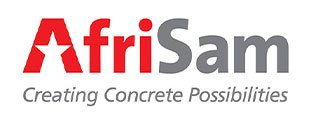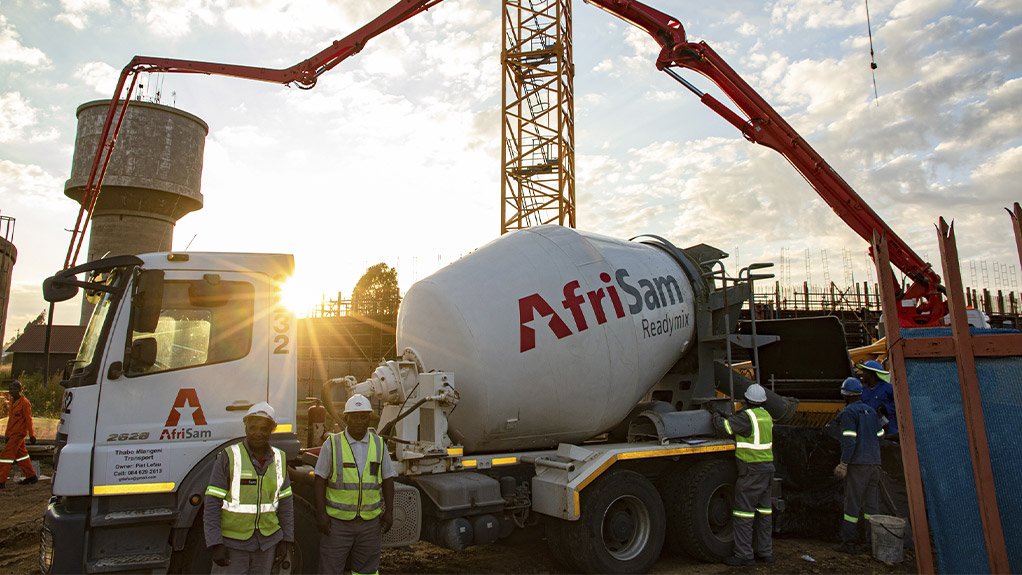

Construction materials group looks forward as it reaches 90-year legacy


NINE DECADES The company has been involved in several iconic infrastructure projects, such as Johannesburg’s Mandela Bridge and the 50-storey Carlton Centre, as well as the Gautrain in the lead up to the 2010 Soccer World Cup, besides many others
As construction materials group AfriSam celebrates a legacy of 90 years, the group plans to continue innovating, reduce its carbon emissions and improve sustainability, boost skills, and drive technical performance and service as it looks forward to maintaining its role in iconic infrastructure projects across South Africa.
“AfriSam is celebrating nine decades in the construction materials industry and its commitment to innovation, quality and sustainability has been the cornerstone of its success,” says AfriSam construction materials executive: sales and product technical Amit Dawneerangen.
Founded in 1934, AfriSam has built a legacy of quality and expertise, driving product standards and addressing rising sustainability concerns to reduce CO2 emissions.
The company has been involved in several iconic infrastructure projects, such as Johannesburg’s Mandela Bridge and the 50-storey Carlton Centre, as well as the Gautrain in the lead up to the 2010 Soccer World Cup, besides many others.
Its successes have occurred amid an ever-evolving and transforming construction landscape, with the construction materials industry, heavily linked to the construction sector, experiencing major phases of economic cycles, often linked to key events that have taken place in South Africa and globally.
From periods of high demand amid development and heightened spend in infrastructure to periods of low demand, which Dawneerangen believes the sector is currently in, AfriSam has been flexible and adaptable in navigating the changes to meet customers’ requirements.
“It is that cyclic nature that we have had to deal with over the 90 years, and we have been able to adapt in terms of flexing our resources to make sure we keep up and remain relevant during the downtimes,” he says.
While demand has been muted over the past few years, exacerbated by Covid-19 in 2020, when the construction sector shut down for nearly half a year, he expects an upturn in due course, with South Africa at a point where infrastructure development and spending by government and State-owned enterprises (SOEs) is imminent.
“We are quite positive for the future, and we are well positioned, in terms cement, slagment, aggregates and readymix, to be able to satisfy the demand for those projects,” he continues.
One potential focus for the company is operating where the projects are and adopting what Dawneerangen calls a contractor mindset, outlining one way in which AfriSam has evolved over the years.
“We have been very rigid over the years where we tended to operate in our areas, especially on the construction materials side, but now we are looking at more mobile production facilities.”
He cites examples of potential projects such as wind and solar farms in the Northern Cape, Eastern Cape, and Western Cape, where the company could, project dependent, establish a temporary production facility or mobile crushing capacity onsite to meet the demand.
“There is a lot of work that emerges from outside of our footprint that we are not able to capitalise on,” he explains, highlighting ambitions to service those segments of the construction industry.
AfriSam has been successful in one such project based in Brakpan, where the company established a new concrete plant for an SOE client.
Developing Skills
In addition to capitalising on short-term opportunities, AfriSam’s success moving forward relies on its people.
The company, which has been at the forefront of many innovations, focuses on skills development to stay ahead in the changing environment.
The way construction was undertaken decades ago has changed significantly, and with the technologies and the equipment now available, projects can be undertaken quicker – and to a higher quality.
“Over the 90 years, since 1934, the demand or requirement for skills has evolved and increased, particularly in terms of technical skills, amid the significant advancements in cement and concrete production.”
AfriSam, which has a high staff retention rate, has, over the years, invested significantly in its in-house training initiatives, including programmes at its Centre of Product Excellence in Roodepoort, internal learning and development programmes, engineering training programmes, mentorship and coaching programmes and partnerships with tertiary institutions, besides others.
In addition, with the industry-wide loss of skills over the past 15 years, and the right-sizing of most large contractors that left them with fewer in-house resources, including technical skills and concrete technologists, AfriSam is able to play a bigger role in supporting its clients.
“We offer those services – technical support, mix designs and product application, besides others – to our customers and contractors, and we offer training to ensure the client uses the product in the best possible way.”
In addition to skills, the demand for environment-friendly products and operations has also grown, with AfriSam leading the way with a more than 30% reduction in its CO2 emissions since the 1990s, and becoming the first to publish the CO2 footprint of its product on its bags.
The biggest contributor to CO2 is in cement manufacturing, he explains, noting that for every tonne of cement manufactured, there is about a tonne of CO2 emitted.
The company continues to seek out strategies such as waste heat recovery and reuse, along with the use of alternative fuels, to mitigate the effects of energy-intensive cement manufacturing processes.
The company also leverages opportunities to incorporate supplementary cementitious materials, or the by-products of other industries, such as fly ash from power stations and ground granulated blast-furnace slag from steelmaking plants.
“We are constantly looking at pushing the boundaries to see how we can use more of these while maintaining the same performance, strength and setting characteristics for the end user.”
The group is also reusing a lot of waste material, including those from a site’s over order of concrete or the leftover concrete from a readymix truck.
“We have managed to find ways of reusing and recycling those materials for reuse in concrete. We have also found a place for it in some of our aggregate products. This prevents the dumping of leftover products in a landfill site, or any other suitable site, as it is used as part of the process,” he continues.
Further, at AfriSam’s various readymix plants, recycled water pits have been installed to enable the extensive reuse of water.
The group was also the first to cover the chutes of its ready-mix trucks to prevent spillage on road infrastructure during transport to sites.


